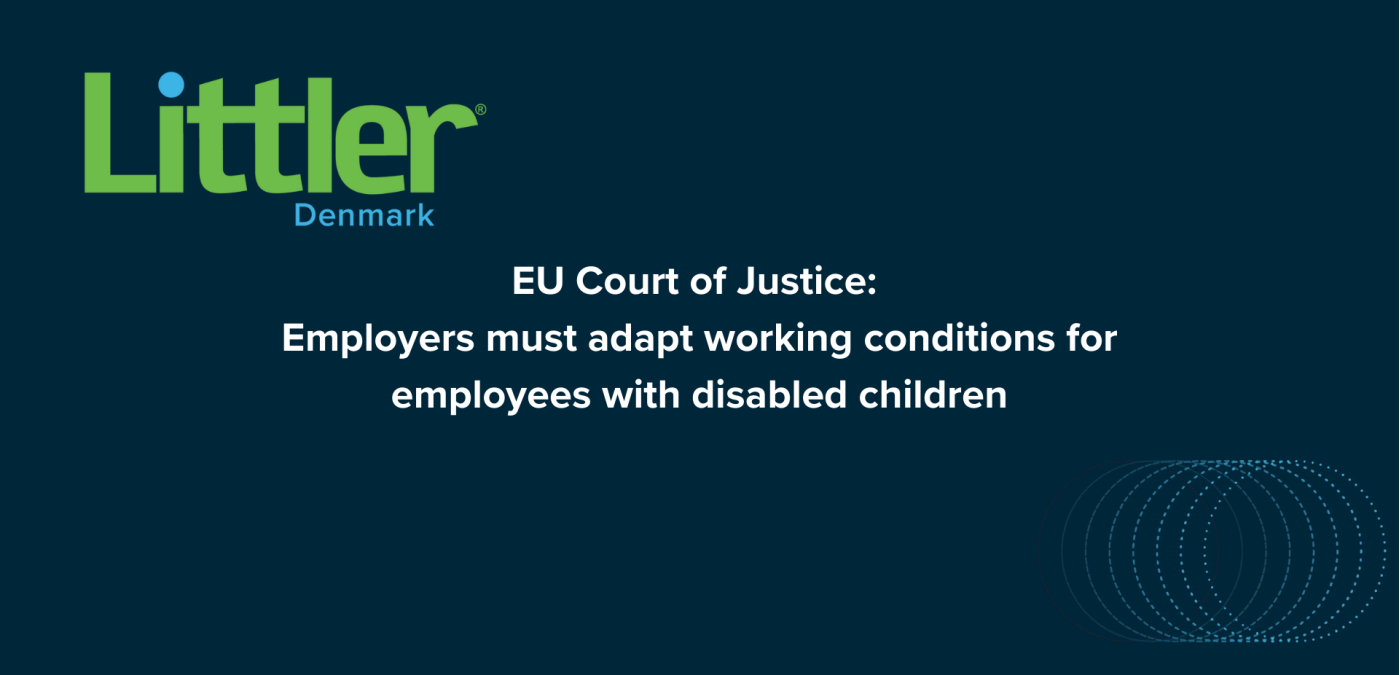
EU Court of Justice: Employers must adapt working conditions for employees with disabled children
Published: August 16, 2025.
EU Court of Justice ruling of September 11, 2025 (C-38/24).
The case concerned an employee in Italy who worked as a station operator, which involves monitoring and controlling a metro station. The employee had a minor son who suffered from a severe disability and was completely disabled. The son lived with the employee and had to follow a care program at a fixed time in the afternoon. Therefore, the employee asked her employer to be permanently placed in a position with fixed working hours, possibly at a slightly lower level, so that she could take care of her son. The employer rejected her request but granted her some temporary adjustments to her working conditions, consisting of a fixed place of work and the option to choose her preferred working hours. On this basis, the employee brought a case against her employer at the Italian courts, claiming that her employer should permanently place her in a position with fixed working hours. She also claimed compensation for unlawful discrimination.
An Italian court of cassation referred a question to the European Court of Justice, asking whether the prohibition of indirect discrimination on grounds of disability and the obligation to make reasonable accommodation in the Employment Equality Directive (2000/78/EC) also applied to an employee who did not herself have a disability but who had a child with a disability, if the employee provided the majority of the care. This is also known as indirect discrimination ‘by association’ on grounds of disability.
The prohibition of indirect discrimination on grounds of disability and the obligation to make reasonable accommodation also covers employees with
The European Court of Justice has previously ruled in the Coleman case (C-306/06) that the prohibition of direct discrimination on grounds of disability also covers employees with an disability by association. However, the European Court of Justice had never before ruled on whether these employees were also protected against indirect discrimination and, if so, whether the employer had a duty to accommodate the employee.
The European Court of Justice ruled that the Employment Equality Directive – in light of the Directive's purpose, the EU Charter, and the UN Convention on the Rights of Persons with Disabilities – also protects employees with disability by association against indirect discrimination and that the employer has a duty to make reasonable accommodation to the working conditions for these employees, provided that these accommodations do not impose a disproportionate burden on the employer.
Littler notes
The ruling is fundamental and removes the previous doubt as to whether the prohibition of indirect discrimination on grounds of disability and the obligation to make reasonable accommodation also applies to employees who do not themselves have a disability but who have a disabled child for whom they provide the majority of the care. In UfR 2016.2530 H, the Danish Supreme Court expressed skepticism that employees who were not themselves disabled could invoke protection against indirect discrimination but left the final decision on the matter to the European Court of Justice.
With the judgment of the European Court of Justice, there is no longer any doubt that employers may not indirectly discriminate against employees with disability by association and that they must adapt working conditions to a reasonable extent in relation to these employees, provided that these adaptations do not impose a disproportionate burden on the employer.
